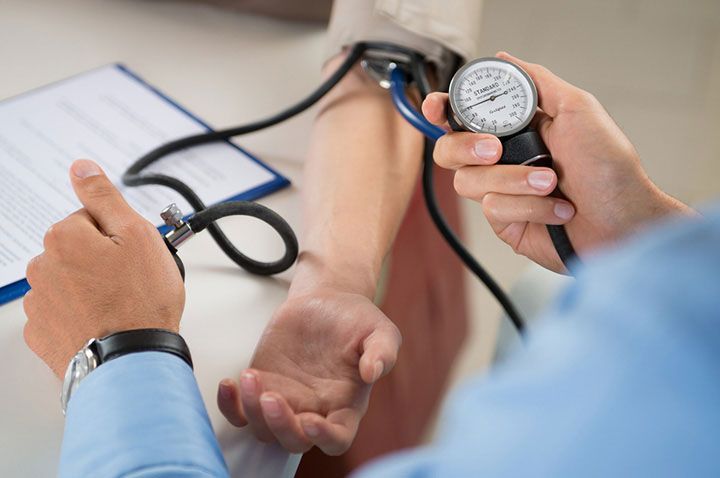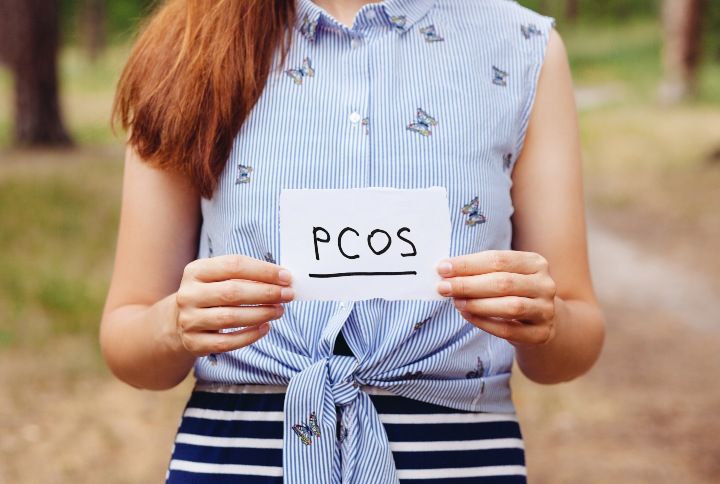Q. Is it okay for a woman to not take any treatment if her periods are irregular and she is not planning to conceive and her symptoms aren’t so bad either? What is the line that differentiates the period frequency as risky VS not risky? For example, if the woman gets her period at least four times a year, is that okay?

Great question. The logic of aiming for regular periods is to avoid having continuous unopposed exposure of the uterus to estrogen in PCOS. In a healthy situation when somebody has regular ovulation that means she is releasing an egg every month. That releases progesterone. Progesterone is the “pro-gestation” hormone, it is the “pro-pregnancy” hormone which prepares the uterus lining for a possible pregnancy. This is the lining that gets shed as healthy menstrual bleed if she does not conceive in that month. So in PCOS, when there is no ovulation (due to insulin resistance in the ovary) there is not enough progesterone. The estrogen is forcing the endometrial lining to get thicker and thicker. If this goes on for years it is considered a risk for endometrial cancer therefore having at least 3 to 4 withdrawal bleeds (induced by giving progesterone and then withdrawing progesterone) helps reduce this risk. Focus on the lifestyle change because even if you don’t want to conceive, you may still have insulin resistance which may not be linked to endometrial cancer but is linked to many other conditions that ought to be addressed even if you’re happy with four withdrawal bleeds a year.
Q. How rare is lean and normal BMI type of PCOS? What are the prognosis and possible long-term implications?

Lean PCOS definitely exists and we need to rule out two rare things that can look like PCOS by checking 17 hydroxyprogesterone and midnight saliva cortisol or 24-hour urine cortisol. For someone who is overweight with PCOS one of the most important part of treatment becomes weight loss but this is obviously not the case for someone with lean PCOS. So the treatment for lean PCOS still focuses on insulin resistance reversal without weight loss, so managing sleep, stress, nutrition, and improving body composition through muscle-building exercise becomes very important. It’s also important to make sure you have a healthy body image and positive body acceptance from a spiritual perspective.
Q. Which tests should be conducted to detect PCOS?

- An endocrinologist needs to make sure there is no overlap with two rare conditions that can look just like PCOS. This is done by checking 17 hydroxyprogesterone and screening for excessive cortisol secretion.
- An ultrasound (sonography) of the abdomen and pelvis should be done to confirm PCOS, look for fatty liver and rule out adrenal issues.
- Male hormone levels that are androstenedione, total and free testosterone DHEAS should be done at 8 AM on any day between day 2 and day 6 of the menstrual cycle.
- Insulin resistance tests like fasting insulin, fasting glucose, HbA1c, triglycerides, HDL, liver enzymes, highly sensitive C reactive protein should be done.
- Nutritional assessment CBC, iron-binding studies, ferritin, vitamin B12 And vitamin D levels should be checked.
Q. I have been battling PCOS since I was a teen. How do I keep a check? I’ve tried almost everything!

Your frustration is understandable. Please know that your body is not trying to be sick and not trying to make you suffer. It’s very important to go into the details of the nutrition, sleep, stress and exercise. Maybe when a woman with PCOS was working on her nutrition, her sleep was bad (so growth hormone release was affected) or maybe when she was trying to exercise she was going through a lot of stress (which raises cortisol, causes insulin resistance and leptin resistance). I’d like to describe lifestyle change as the four wheels of the car. Even if one tyre is punctured it doesn’t matter that the other three are fine. All four need to be in good condition simultaneously for the car to move well. Each tire doesn’t need to be ‘perfect’ but at least needs to be functional. In the body, this means that nutrition, sleep, stress and exercise need to be somewhat managed simultaneously to allow the body to move forward on the healing journey. Don’t give up—you can get better! Also sometimes frustration about past experience can contaminate our focus on the present moment because we start getting fearful and worried that the future will still be as bad as the past. That takes us away from the present moment which is the only moment we have to make changes and we feel overwhelmed and unable to focus. This is natural and understandable. Awareness is the first step. Trust the process and trust that your body wants to heal. Maybe the body’s telling us something and we weren’t able to understand that in the past.
What’s your biggest concern when it comes to managing your PCOS symptoms? Please share it with us in the comments below!
Join Malini’s Girl Tribe on Facebook to be a part of more such conversations.

